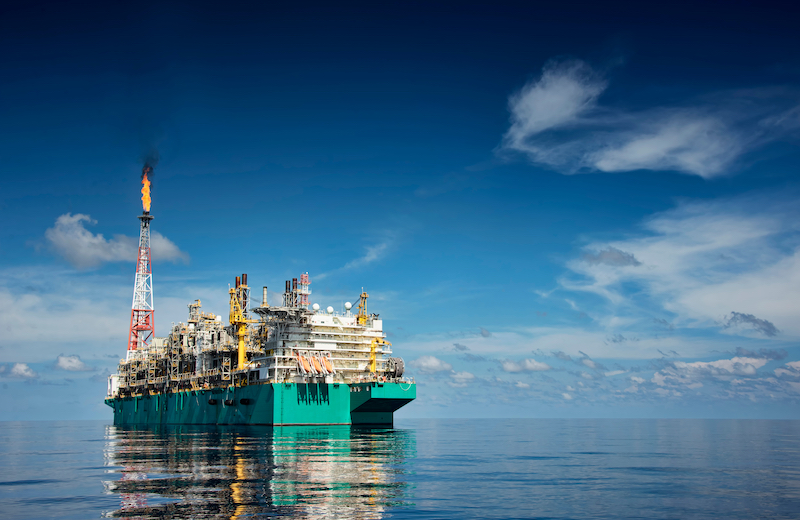Black & Veatch Expects Floating LNG Capacity to More Than Quadruple by 2030
(Reuters) — U.S.-based engineering and construction group Black & Veatch (B&V) said on Monday it expects global floating LNG capacity to increase more than four-fold to 46.4 million metric tons per annum (MTPA) by 2030, as they have become competitive with fixed terminals for smaller fields.
B&V, which says it is involved in the construction of about half of the FLNG plants currently in development globally, expects FLNG capacity to increase significantly in 2023 for the first time since the pandemic.
Floating LNG (FLNG) plants have become more economical to operate in smaller gas fields than fixed terminals, a senior official from U.S.-based engineering and construction group Black & Veatch (B&V) said on Monday.
"Floating LNG has become almost as competitive as onshore LNG (for smaller projects). Depending on the topography, sometimes onshore might be even more expensive," Narsingh Chaudhary, President - Asia Pacific & India at B&V told Reuters.
Installing FLNG plants is quicker than building fixed terminals, but demand for vessels has risen sharply as governments across Europe scramble to find quick ways to secure more LNG cargoes.
Chaudhary said FLNG plants were not feasible for large capacities in the range of 7.5 MTPA seen in Qatar and Australia, adding that it was not possible to economically generate that amount of power.
"1.5 million to 2 million tonnes of capacity (per annum) per train is the sweet range. Normally we have not seen players wanting to go more than two trains," he said.
Chaudhary expects a shortage in capacity of facilities manufacturing equipment to serve the FLNG industry and those of shipyards were the biggest constraints hindering expansion.
"The first movers will of course capture the capacity and once those capacities are taken, the other ones will have two choices: one, to postpone. Second would be to go and try out new shipyards and take the development risk," Chaudhary said.
"There are a lot of shipyards, but not many have that experience. There are very few shipyards who have actually done a floating LNG (project)," he said.
While industry advocates say gas is cleaner than burning coal, many environmental groups oppose LNG development citing studies that show LNG greenhouse gas emissions include potent methane leaks, while other cities like Italy's Piombino have questioned the safety of the infrastructure on coastal cities.
Related News
Related News

- Keystone Oil Pipeline Resumes Operations After Temporary Shutdown
- Freeport LNG Plant Runs Near Zero Consumption for Fifth Day
- Biden Administration Buys Oil for Emergency Reserve Above Target Price
- Mexico Seizes Air Liquide's Hydrogen Plant at Pemex Refinery
- Enbridge to Invest $500 Million in Pipeline Assets, Including Expansion of 850-Mile Gray Oak Pipeline





Comments